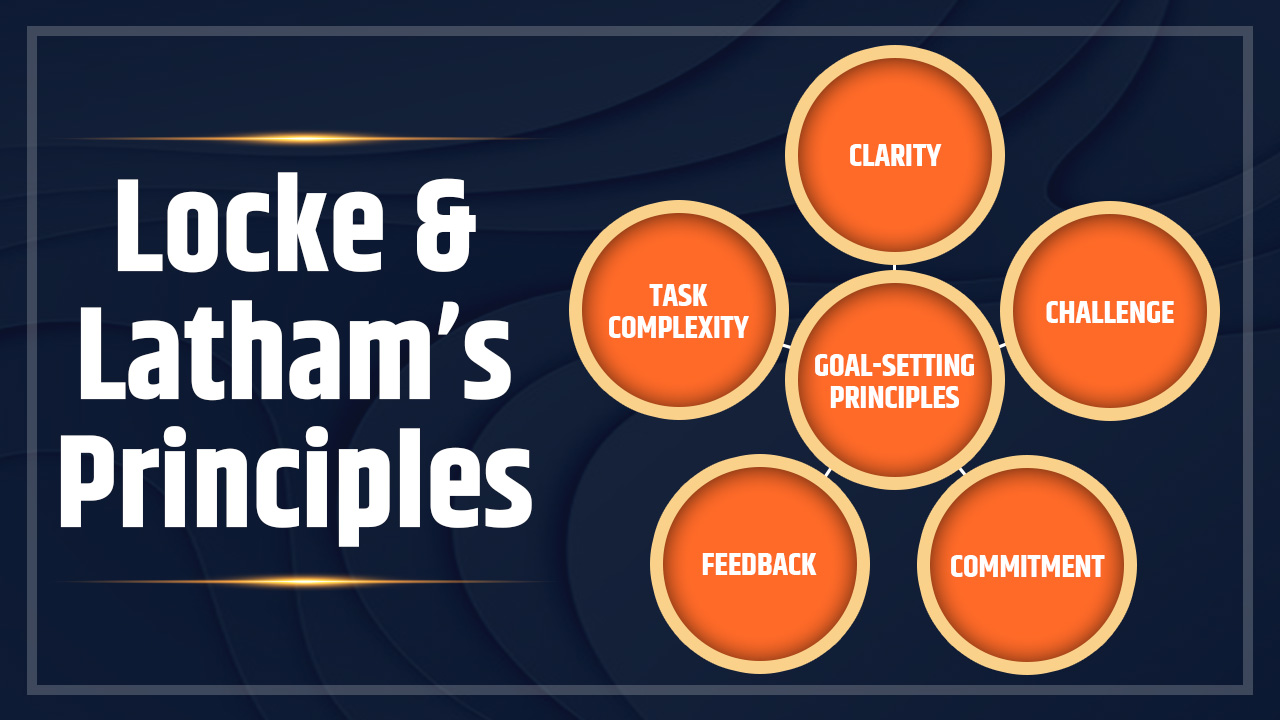Goal setting is vital for the success of any organisation's success. It enables individuals and teams to concentrate their efforts, track progress, and attain desired outcomes. In 1960, Dr. Edwin Locke & Dr. Gary Latham introduced the concept of the Five Principles of Locke & Latham's Principles of Goal Setting in their book titled "A Theory of Goal Setting and Task Performance." These principles have since become fundamental to modern management practices and are widely implemented in organisations globally.
In their 1960 book "A Theory of Goal Setting and Task Performance," Dr. Locke & Dr. Latham presented five key principles of goal setting: clarity, challenge, commitment, feedback, and task complexity.
“What you get by achieving your goals is less important than what you become by achieving your goals.”
In this blog, we will discuss five principles of Locke & Latham’s principles of goal setting.
Five Principles of Locke & Latham’s Principles of Goal Setting:
1. Clarity - Setting Clear & Precise Goals
Clarity is essential for achieving optimal results and significant growth in life. Therefore, goals should be clear, precise, specific, and easily understood by everyone in the organisation. Clarity enables accurate result measurement and encourages desirable behavior.
“A goal without a timeline is just a dream”.
2. Challenge - Setting Challenging Goals
Challenges motivate and inspire individuals to strive for specific goals. Research shows that setting specific and challenging (yet realistic) goals leads to higher performance and greater success.
Specific & challenging (yet realistic goals) = More Sucess
3. Commitment - Securing Team Commitment
Success is not solely the result of individual efforts but rather a collective endeavor. Goals are more effective when there is team understanding, consensus, and commitment. Encouraging employees to achieve goals by providing clear objectives and the freedom to innovate fosters motivation.
Self-commitment + Team commitment = increased motivation
4. Feedback - Evaluating Your Progress
Receiving feedback allows for adjustments and improvements, while feedforward (prospective feedback) helps clarify expectations and adjust goal difficulty levels. Providing constructive, measurable, and informative feedback to employees facilitates their development and performance.
5. Task Complexity - Managing Complexity
Overburdening employees can diminish motivation and impede progress. Breaking tasks into manageable sub-goals and providing adequate support, training, coaching, and mentoring can enhance employee motivation and morale.
“People working in complex & demanding roles often push themselves too hard”
The Five Principles of Locke & Latham's Principles of Goal Setting are essential for achieving organisational success. By setting clear, challenging, and measurable goals, securing team commitment, providing constructive feedback, and managing task complexity, organisations can achieve their desired outcomes. These principles have been widely embraced in modern management practices, and their efficacy is well-documented. By adhering to these principles, organisations can foster a culture of performance, accountability, and continuous improvement, crucial for long-term success.




















